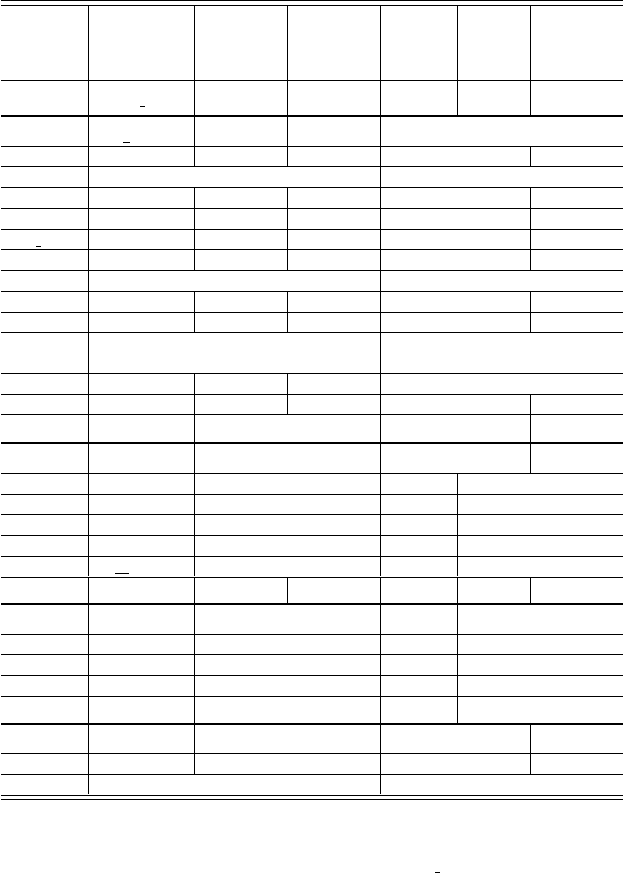Krishnamurti Bhadriraju. The Dravidian Languages
Подождите немного. Документ загружается.


5.9 Compounds 201
The patterns are analysed below into constituents, in terms of their parts of speech
and their likely meaning relationships, treating the linear constituents as x and y.
5.9.1 Verb + verb
(Doing x + doing y): there are not many of this type.
18
Ta. Ma. ¯ar-¯ay ‘to investigate’, ¯ar-¯aycci ‘research’, Ka. ¯ar-ay,Te.¯ar-ayu, ar-ayu,
Ko
.
n
.
da rey- ‘to search’ [
∗
¯ar ‘to become full’, 368 +
∗
¯ay ‘to search’, 363].
5.9.2 Noun + noun
This construction is quite common. The first N stands in an attributive relation to the
second, e.g. ‘the fly of honey, honey-bee’, ‘water from eyes, tears’, ‘God’s/King’s res-
idence, temple/palace’, etc. The underlying case relations are set out in terms of the
meaning relationship between the two constituents, x and y.
(i) xy = y lives on x or y causes
x
3268b: Ta. t¯e
n-¯ı ‘honey-bee’, Ko
.
d. t¯em-pu
.
lu;
19
Te. t
˜
¯e
.
t-i ‘honey-bee’, Ku
.
r. t¯ın-¯ı ‘bee’,
Malt. t¯en-i ‘honey, bee’ [
∗
t¯en/
∗
t¯ın ‘honey’ 3268a,
∗
¯ı ‘fly’ 533; lit. ‘honey-fly’].
(ii) xy = y comes out of x (x = source, y = object produced)
1159b: Ta. Ma. ka
.
n-
.
n¯ır,Ko.ka
.
n¯ır,To.ke
.
n¯ır, Ka. ka
.
n-
.
n¯ır,Tu.ka
.
n
.
n¨ı-n¯ır,Te.kan-n¯ıru,
Go. kan-n¯ır, kan
.
d-¯er, k¯an-¯er,K
o
.
n
.
da ka
.
n-er(u),
Pe.
ka
.
n-er,
20
Kui kan
.
d-ru, Kuvi kan
.
d-ru,
Br. xa
.
r¯ınk [
∗
ka
.
n ‘eye’ 1159a,
∗
n¯ır ‘water’ 3690a; lit. ‘eye-water’].
2402b: SD II: Go. sa
.
r¯ap¯ı, ha
.
rap, a
.
rpi ‘cowdung’, Ko
.
n
.
da sa
.
rapi, r¯api, Kuvi, Pe. Man
.
da
.
r¯api; CD: Nk. sanap,Pa.ca
.
rpi, Oll. sa
.
rpi, Gad. sa
.
dpi; 2402a SD II: Ko
.
n
.
da
.
r¯anu ‘ox’,
dial. sa
.
ra id., Kuvi s
.
rahnu k¯o
.
di ‘bullock’; cf. Gad. sa
.
rit ‘bullock’ [
∗
?ca
.
t-a ‘bullock’ +
∗
p¯ı ‘excrement’ 4210].
2625:
Ta.
¯ır, ¯ırppi, Ka. ¯ıpi, s¯ır, ¯ır;Te
.
¯ıpi n., ¯ırcu v.t.,
Go.
s¯ır, h¯ır, ¯ır,Ku
i
s¯ır-eni ‘comb’,
Kuvi h¯ıru ‘nit’, Pe. Man
.
da h¯ır;Ku
.
r. c¯ır [
∗
c¯ır ‘nits’, +
∗
p¯ı ‘eggs
laid by, excrement
’SD
I and Te.].
3408: Ta. te˙nku, te˙nkam, t¯e˙n-k¯ay ‘coconut’, Ma. t¯e˙n-˙n¯a, te˙n˙na˙n-k¯ayi ‘coconut’, To. t¨o-
goy, Ka. te˙n-g¯ay,Tu.te˙n-g¨ı ‘coconut tree’; Te.
.
te˙n-k¯aya ‘coconut (palm)’ [cf. 3449:
∗
ten
‘south’ +
∗
k¯ay ‘fruit’, lit. ‘fruit-from-south tree’].
fit better. Te. pokk-ili also presents a problem because
∗
.
z becomes
.
d and not l intervocalically in
Telugu.
18
Actually the verb compounds or compound verbs are separately discussed in the chapter on the
verb.
19
pu
.
lu is not a cognate; this is given only to support the identification of
∗
¯ı as another word and
not a suffix.
20
It appears that -er in some of the SD II languages is from PD
∗
y¯at ‘water’ > SD II ¯eru which
replaced
∗
n¯ır.

202 Wo r
d formation
(iii) xy = y belongs to x (x = owner/resident, y = place)
2177: Ta. Ma. k¯oy-il ‘palace, temple’, k¯ov-il ‘temple’, k¯o, k¯o
n ‘emperor, king’; Te. k¯ov-
ila, k¯ov-ela ‘temple’ [
∗
k¯o ‘King/God’ 2177,
∗
il ‘house’ 494; lit. ‘King’s/God’s place’].
2215: Ka. k¯on¯eri, k¯on¯eru;Te.k¯on¯e
ru ‘a square tank with steps on four sides, a temple
tank’ [?God’s-tank; cf.
∗
y¯at-V ‘tank’ 5159].
(iv) xy = y is called x (x = proper noun, y = common noun)
2607: Ta. c¯ı-kk¯ay, Ma. c¯ıkka-kk¯ayi, Ka. s¯ı-ge,Te.s¯ı-k¯aya, c¯ıki-r¯eni ‘soapnut tree’.
(v) xy = object y has quality x (y is head and x attribute)
4035: Ta. pa
ni ‘dew’, Ta. pan-n¯ır ‘rosewater’, Ma. pani-n¯ır id., Ka. pan-n¯ır,Ko
.
d. pan-
n¯ır¨ı,Tu.pan-n¯ır¨ı ‘perfumed water, rosewater’: ‘dew water’ > ‘rose water’, Ka. pan-n¯ır;
Te. pan-n¯ıru ‘rose water’ [
∗
pan-V ‘dew, coldness’,
∗
n¯ır ‘water’ 3690a].
(vii) xy = y has x (the meaning of x is not clear; could it mean ‘bent’?)
21
4990: Ta. mu
.
zam ‘cubit’, Ta. Ma. mu
.
za˙n-k¯al ‘knee’, muza˙n-kai ‘elbow’, Ko. mo-gay
‘elbow’, mo-g¯al ‘knee’, Ka. mo
.
za-k¯al ‘knee’, mo
.
za key ‘elbow’, mo
.
la ‘cubit’, Ko
.
d.
mo
.
la-kay ‘elbow’, Tu. mura˙n-g`e, mora˙n-g`e ‘cubit’; SD II; Te. m¯ura ‘cubit’, mr
˜
¯
oceyyi,
mr
˜
¯
ok¯alu, m
˜
¯
okar-illu ‘to bend’; CD: Kol. mov-ka, m¯o-ki ‘elbow’; ND: Ku
.
r. m
˜
¯uk¯a ‘knee’,
Malt. m¯u-ke ‘knee’ (loss of final -l in ND).
5.9.3 Adjective + noun
The first element is a descriptive adjective qualifying a following noun head:
5312: Te. karu-wali ‘soft breeze’, wali ‘chill, cold’, 5312:
∗
wa
.
l-i ‘wind’ [SDI, SD II, CD;
the meaning of karu- is not clear].
3184: Ta. t¯a
.
z-va
.
tam ‘necklace of beads or pearls’, Ma. t¯a
.
z-va
.
tam, t¯a-va
.
tam, Ka. t¯a-va
.
da,
Te. t¯a-wa
.
tam, t¯a-wa
.
lam ‘necklace of lotus beads, rosary’ [t¯a
.
z ‘low’ > ‘hanging’ 3178
and va
.
tam ‘string’ SD I and Te. Go. 5220].
3758: Ta. neru-nal, neru-nai, ne
n-nal ‘yesterday’, Ka. nin-ne,Ko
.
d. nin-n¯an
.
d¨ı,Te.nin-
na, Go. nin-n¯e (obl. nin-n¯e
.
t), Ko
.
n
.
da i-
ʔ
en (i-
ʔ
eR-), dial. i-nen, Man
.
da ineli
ŋ
;
∗
ner- >
∗
nre- > re-: Kui ri¯ısi, Kuvi re
ʔ
e, re
ʔ
eni;Br.dar¯o [cf. Ma. in-n¯a
.
le,To.¨ı-n¯er,Ko.n¯er
(obl. n¯e
.
t-)].
22
21
In the following example, the first constituent is likely to be
∗
mo
.
z-V- ‘to bend’ [5123]; the ‘cubit’
meaning must be later, because of the following
∗
kay ‘hand’, but that meaning would not go
with
∗
k¯al ‘leg’.
22
Kui–Kuvi indicate the first constituent as
∗
nit-V ‘to be complete, full’ [3682], but Ta. neru- does
not phonologically match, although
∗
n¯er-/ ner-V- [3672] looks better. The forms with
∗
nin-/
∗
in-
require
∗
nin-t- ‘to be full’ which DEDR connects to
∗
nit- [3682]. These etymologies need further
examination.

5.9 Compounds 203
5020b: Ta. mu
n-n¯a
.
l ‘yesterday’, Ka. mon-ne ‘day before yesterday’, Te. mon-na, Go.
mun-ne, mon-ne,Ko
.
n
.
da mu-
ʔ
e (mu-
ʔ
eR-) ‘day after tomorrow’, Pe. ? mayhi
ŋ
id., Man
.
da
ma
ʔ
hi
ŋ
,Kuimaisi ‘a future day’ [4615].
4411: Ta. perum-puli ‘tiger’, Te. pedda puli, be-bbuli ‘big tiger’, Kol. per-pul, Oll. ber-
pul, Gad. ber-bull¯u [
∗
p¯er/
∗
per-V + puli ‘tiger’ 4307; in Telugu ‘a cheetah’ is called
ciruta puli ‘small tiger’].
4954: Ta. mutu ‘old’, m¯utt-appa
n ‘father’s father’, Ma. m¯utta- ‘old, grown’, m¯utt-appan
‘father’s elder brother, father’s father’, Ka. muttu ‘advanced age’, mutta- ‘aged’, Ko
.
d.
mutt-ajj¨e ‘great-grandfather’, mut-t¯ay ‘great-grandmother’, Te. mut-t¯ata ‘great-grand-
father’, mutt-awwa ‘great-grandmother’.
4106. Ta. p¯akka
n, Ka. b¯avuga;Te.b¯avuru-billi, Go. bakoval,Pe.boyka,Kuib¯ao
.
di,
b¯aoli, Kuvi b
˜
¯
auli (Is.) ‘wild cat’ [Te. also b¯avurumanu]; Nk. bagale,Pa.b¯avki. This
group sounds foreign and
needs further investigation.
4337: Ta. pu
n-cey ‘land fit for dry cultivation’, Ma. pu˜n-ca-kka
.
n
.
tam ‘field under irriga-
tion’, Ka.? pu
.
naji,Tu.pu˜n-ca-ka
.
n
.
da ‘a very good rice field’, Te. pun-ja ‘land for dry
cultivation’ as opposed to nan-ja.
23
Cf. Ta. punam ‘upland fit for dry cultivation’.
4654: Te. ma
.
d-iw¯elu ‘washerman’, Ka. ma
.
di-v¯a
.
la, ma
.
di-v¯a
.
li ‘washerman/woman’, Ko
.
d.
ma
.
di-v¯a
.
l¨e ‘washerman’, Tu. ma
.
d
.
d-ele ‘washerman’ [
∗
ma
.
ti ‘ceremonial purity’ 4654 and
∗
w¯el-ay ‘work’ 5540 (SD I)].
4813: Te. m¯ena-m¯ama ‘maternal uncle’, m¯en-atta ‘paternal aunt’(see 4813 and
53b in Appendix); Te. m¯ena- ‘connected through a man’s sister or woman’s brother,
cross-’, m¯ena-g¯o
.
dalu ‘niece’, Nk. meonak ‘cross-cousin’, Kon
.
da m¯e
.
na’en (Burrow and
Bhattacharya) ‘father’s sister’s son’, Pe. m¯e
.
na
.
ton
.
den ‘male cross-cousin’, Kuvi meh
.
n-
attayi ‘female cross-cousin’ || CDIAL 10341 maithuna- ‘copulation’, DNM mehu
.
naya-
‘father’s sister’s son’, mehu
.
nia- ‘mother’s brother’s son’, -i¯a- ‘mother’s brother’s
daughter’.
2539: Ta. cemmal ‘water’, Tu. simma ‘cold’, temma ‘cold, cough’, Te. cemma, camaru,
cema
.
ta; temm-era ‘cold breeze’; 810: Ka. eral ‘breeze, wind’.
5.9.4 Verb + noun
There is a small class of constructions with a verb as a modifier of a following noun
head:
2882: Ta. c¯ompu ‘to be idle’, c¯omp-¯e
ri, c¯om-¯ari ‘an idler’, Ka. Tu.Te. s¯om¯ari (the second
element is not clear, but it means ‘a male person’).
3246: Ta. tiri ‘to turn, revolve’, Ka. tiraga
.
ni/e ‘turning, a wheel for raising water’; Te.
tirugali ‘a hand-mill’ [the second element is
∗
kal ‘stone’ 1298].
23
A plausible etymology for Te. nan-je is
∗
nal/nan ‘good’ [3610] and cey ‘field’ from
∗
key [1958].
It follows that pun-je is from
∗
pul-/pun- ‘small, bad’ [4301] and cey ‘field’.
204 Wo r
d formation
5372: Ta. v¯aval, vavv¯al, vauv¯a ‘bat’, Ma. v¯aval, vavv¯al, Ka. b¯aval(i), b¯avul(i), Ko
.
d.
b¯aali,Tu.b¯avali; Te. ?b¯avuru pilli ‘a wild cat’, Kol. velape, Kuvi b¯apla; cf. Ta. vavvu
‘to snatch’, vau(vu) ‘to seize, snatch, steal’, Ma. vavv¯ayi, vavv¯ali ‘fox’, Te. b¯awu-konu
‘to gobble up’.
24
5.9.5 Compounds with doubtful composition
?2274: Ta. ak-ku
.
l, ca˙nkam ‘armpit’, ak-ku
.
lu ‘to tickle’, Ka. cak-kala-gu
.
li ‘tickling an-
other’, ak-ka
.
like ‘tickling’, Ko
.
d. kak-ku
.
li id.; Te. canka ‘armpit’, cakkili gili ‘tickling’;
Ku
.
r. ca
ŋ
gr- ‘to itch’. The second element is
∗
ku
.
zi ‘pit’, but the first is not clear.
25
3971: Ka. pari-y¯a
.
na, pari-v¯a
.
na, hari-v¯a
.
na, ari-v¯a
.
na ‘a plate-like vessel of metal’, Tu.
hariv¯a
.
na; cf. Ta. aruv¯a
.
nam ‘copper tray’, Te. (h)ari-v¯a
.
nam (lw < Late Ka.).
24
The second element ¯al looks like an archaic word, ?
∗
y¯al, meaning ‘an animal’, cf. Te. t¯o
.
d-¯elu
‘wolf’, t
˜
¯ab-¯elu ‘a tortoise’, kund-¯elu ‘hare’.
25
Another parallel etymology discussed by Emeneau (see fn. 16 above) is 1234 To. komkw¨ı
.
r, Ka.
kavu˙n-ku
.
z, ka˙n-ku
.
z, ko˙n-ku
.
z ‘armpit’, Tu. ka˙n-ku
.
la, Go. kakri,Pa.kav-kor, kav-ko
.
d ‘armpit’.
Emeneau suggests
∗
kam-V/kav- ‘smelling’ [1334] and
∗
ku
.
z-i ‘pit’. It appears that Te. kawung-
ili ‘embrace’ does not belong to this set. It is likely to be related to Te. kaw-iyu ‘to cover
completely’ from
∗
kap- [1221].

6
Nominals: nouns, pronouns,
numerals and time and
place adverbs
6.1 Introduction
Nominals in Dravidian are a morphosyntactic class of words, which are inflected for case.
Nominals consist of four subclasses: nouns, pronouns, numerals and adverbs of time
and place. All but the adverbs are distinguished for gender and number, besides being
inflected for case. Adverbs of time and place are morphologically nominal, since they
carry case suffixes, but syntactically they function as adverbs, i.e. modifiers of the verb.
Noun stems can be simple, complex or compound. Simple stems are identical with the
roots, e.g.
∗
k¯al ‘leg’,
∗
¯ur ‘village’. Complex stems result from the addition of derivational
morphemes to verbal, adjectival, or nominal roots, e.g.
∗
wil-ay ‘price’ from
∗
wil ‘to
sell’ (see section 5.8.1a),
∗
we
.
l
.
l-ay,
∗
we
.
l-u-ppu,
∗
we
.
n-may ‘whiteness’ from
∗
we
.
l /
∗
we
.
n
‘white’ [5496]. Compound stems consist of a minimum of two roots of which the head
is a noun and the satellite a noun, an adjective or a verb, e.g.
∗
ka
.
n-
.
n¯ır ‘tear’ (N + N),
lit. ‘eye-water’ [1159b],
∗
kitt-eli ‘a mouse’ (adj + N) (lit. ‘small rat’) [1594].
6.2 Gender and number: identification and definition
Gender is a system of classifying ‘nouns’ (other than time and place adverbs) in terms
of certain semantic and formal properties, supported by their grammatical behaviour.
In Dravidian, gender is distinguished in terms of the semantic categories [± human],
[± male human],
1
and marginally [± animate]. In all Dravidian languages [− animate]
1
Traditional grammars have recognized the importance of the category of [± human] in gender
distinction. They called uyar-ti
.
nai ‘high class’ [+ high] vs. a
.
h-
ri
.
nai (← al + ti
.
nai) ‘low class’
[− high] (Tolk¯appiyam, col: 2); correspondingly, mahat [+ high] and amahat [− high] in Telugu
(
¯
Andhra´sabdaci
.
mt¯ama
.
ni). [+ high] represented [+ human] and [− high], [− human]. In Old
Tamil [+ high] split into two in the singular [+ male human], [− male human] and in the plural
[+ human]; [− high] represented [− human] both in the singular and in the plural. It meant non-
human animate and inanimate. In Telugu mahat [+ high] meant [+ male human] in the singular,
but [+human] in the plural; amahat [− high] meant a ‘woman or a non-human’ in the singular,
but in the plural it meant [− human]. Gods, male and female, are fitted into the human class; there-
fore, the choice of ‘superior’ vs. ‘inferior’ as opposed to ‘human’ vs. ‘non-human’. These cate-
gories correctly represent the grammatical situation of these languages as can be seen from the
following discussion (see Bloch 1954: 5–8, Israel 1973: 15–32 for details of Tamil).

206 Nominals
(things) and [− human, + animate] (plants, animals, birds, etc.) are combined into one
category called the neuter gender, in the singular or plural, as the case may be.
Gender distinction in Dravidian is expressed in substantives (basic and derived),
the third personal (demonstrative and interrogative) pronouns, and numerals used ei-
ther as adjectives or as predicates in equative sentences, e.g. OTe. re
.
n
.
du
1
bomma-lu
2
‘two
1
dolls
2
’, iru-wuru
1
tammu-lu
2
‘two
1
younger brothers
2
’ (attributive use), bomma-
lu
1
re
.
n
.
du
2
‘the dolls
1
(are) two
2
’ (predicative use). In most of the languages, finite verbs
and nominal predicates copy the gender of subject nouns, which govern them. Adjec-
tiv
es do not carry any marker
of agreement with the head noun
in gender and number.
Not every language has all the types of gender marking, e.g. Malay¯a
.
lam has lost the
agreement feature in verbs, but the demonstrative pronouns retain the difference, e.g.
vannu ‘he, she, it, they [± human] came’.
Only some subclasses of
nouns carry overt gender marking
in any language. Thus, in
Modern Telugu mogu
.
du ‘husband’ (gender marked by -
.
du), anna ‘elder brother’ (gender
unmarked) are m sg, pustaka-m ‘book’ (-m is gender marker), amma ‘mother’ are non-m
sg. Where the gender is not formally marked, it is expressed in the finite verbs, e.g.
anna
1
wacc-¯
æ
-
.
du
2
‘the elder brother
1
came
2
’, amma
1
wacc-in-di
2
‘mother
1
came
2
’(-
.
du
and -di signal gender). Tolk¯appiyam gives examples with identical subjects but with
different agreement in finite verbs (Israel 1973: 24), e.g. k¯otai vant¯a
n ‘Kotai (a man’s
name) came’, k¯otai vand¯a
.
l ‘Kotai (a woman’s name) came’, k¯otai vandadu ‘Kotai (an
animal’s name) came’. Overt marking of gender is found mostly among nouns, which
are [+ human] following a universal pattern. ‘There is a hierarchy determining overt
gender marking in languages with semantic gender assignment: human > animal >
other animate > other’ (Aikhenvald 1996 MS: 10).
Numerals qualifying a noun marked [+ human] incorporate a human classifier, which
is absent when they are used attributively to non-human nouns, e.g. Te. mugguru
1
manu
.
sulu
2
‘three persons’, but m¯u
.
du
1
pustak¯alu
2
‘three
1
books
2
’. The demonstrative
pronouns reflect the basic contrasts of gender and number in different Dravidian lan-
guages. Gender and number are interrelated categories and have to be treated as a single
system.
There are two numbers in Dravidian, singular and plural. The singular is unmarked
in nouns. In personal and demonstrative pronouns it is possible to segment a marker
for the singular, which is replaced by a plural morph in the plural. In Proto-Dravidian,
a distinction was made between [+ high] and [− high] in plural marking. The feature
[+ high] in South Dravidian I (and Telugu) and North Dravidian meant [+ human]
(men, women, men and women), but in South Dravidian II (without Telugu) and Central
Dravidian it meant [+ male hum], which could extend to mixed groups (men, men and
women) but not to an exclusive group of women. The reconstr
ucted morphemes are
∗
-Vr
for [+ high],
∗
-nk(k), -V
.
l or a combination of these two as
∗
-nk(k)V
.
l for [−high]. All

6.2 Gender
and number
: identi
fication
and de
finition 207
subgroups inherit -Vr, but there is no clear-cut subgrouping in the case of the marker
for [− human] plural. But we notice, in most of the languages, a gradual generalization
of the [−human] plural for both classes of nouns. The original [+ human] suffix
∗
-Vr
has very restricted use in modern literary languages also.
The languages of South Dravidian I have
∗
-kka
.
l, South Dravidian II (other than Telugu)
and Brahui have
∗
-nk(k), Tu
.
lu of South Dravidian I and Central Dravidian have
∗
V
.
l or
∗
-nkk-V
.
l. Telugu has
∗
-V
.
l, but there are a few lexical items with
∗
-nkk-a
.
l as plural which
were reanalysed as stem -nkk and plural -V
.
l, e.g. Te.mr¯anu sg ‘tree’, mr¯a
n
ku-lu pl ‘trees’
(< PD
∗
maram-kka
.
l).
6.2.1 Gender–number contrasts based on demonstrative pronouns
Gender contrasts are presented below in each of the languages and also in some dialects,
in terms of the demonstrative pronouns; for illustration, only the forms derived from the
remote demonstrative root PD
∗
aH, which is the unmarked demonstrative, are taken.
2
It
must be noted that gender and number are distinguished in Dravidian only in the third
person. The first and second persons carry only a number distinction, unlike Modern
Indo-Aryan in which
male and female speakers and addressees
have gender marking on
the verb.
In table 6.1. each row has cells and each cell represents a semantic space occupied
by one form. The maximum possible number of cells is six. If there is only one form
occupying the space of two or three cells, its meaning also correspondingly expands to
include those meanings. Thus in Telugu and the other South-Central Dravidian languages
adi (corresponding to PD
∗
atu) means ‘she, it’ because it occupies the semantic space
of ‘she’ (human female) and that of ‘it’ (non-human animate and inanimate).
6.2.2 Gender subsystems
There are several subsystems of gender in different languages and subgroups and there
is no total unanimity among scholars on the reconstruction of the category of gender
for Proto-Dravidian. There are three dominant types of gender–number distinction in
Dravidian, and each has been separately claimed to represent the Proto-Dravidian system,
according
to some scholars.
Type I in table 6.2 represented the proto-stage of South Dravidian I (Tamil, Malay¯a
.
lam,
Ko
.
dagu, Ku
rumba, Iru
.
la, Toda, Kota, Kanna
.
da and possibly Tu
.
lu), with five formal and
semantic contrasts. In the plural the derivative of
∗
awar meant ‘they’ (men, men and
women, or women).
2
The reconstructions for the proximate demonstrative are
∗
iw-antu,
∗
iw-a
.
l,
∗
i-tu,
∗
iw-ar,
∗
iw-ay.
Here, the laryngeal
∗
H becomes w before -a, and is lost before a phonetic voiced stop [d] (see
Krishnamurti 1997b).

208 Nominals
T
able 6.1.
Semantic
and formal
contrasts in
the third-per
son demonstrative
pronouns
in different Dravidian languages
4 ‘they’ 5 ‘they’
1 ‘he’ 2 ‘she’ 3 ‘it’ (non- (human (human 6 ‘they’
Gloss
(human) (human) human) male) female) (non-human)
Proto
∗
awantu
∗
awa
.
l
∗
atu
∗
awar —
∗
away
1. Ta. avan ava
.
l atu avar avai
(K¯a
.
n.) ave
n
ava adu avru adu
(Eruk.) adu ay
2. Ma. avan ava
.
l atu avar avai
3. Ko
.
d. av¨en ava ad¨ı ay
ŋ
ga ad¨ı
4. Kurumba ava
n
ava adu avaru adu
5. Iru
.
la ave ∼ aven ava ∼ ava
.
l adu, adi avaru ave
6. Toda aθ aθ¯am
7. Kota avn av
.
l ad avr ad
8. Kanna
.
da avaM, avanu ava
.
l adu avaru avu
(Gowda, ˜av˜a adi avu
S Havyaka)
(H¯alakki) av
ə
nu av
ə
.
lu
adu averu
9. Tu
.
lu ¯aye ¯a
.
l¨ı avu ¯aku
.
lu ayku
.
lu
¯ar¨ı avu
10. Te. w¯a
n
.
du
adi w¯aru awi
11. Go. ¯or, ¯o
.
r ad ¯o
.
r/¯o
.
rk av
(Koya) ¯o
.
n
.
d addu ¯or avvu
12. Kui a
ʔ
anju ?¯ari ¯aru ¯avi
13. Kuvi ¯aasi ¯adi ¯ari ¯ati
14. Ko
.
n
.
da v¯anru adi v¯ar avi
15. Pengo avan adel adi avar avek ava
ŋ
16. Kol. am/amd ad avr adav
17. Naik. avnd ad avr adav
18. Pa. ¯od/¯o
.
d ad ¯or av
19. Oll. ¯o
.
n
.
d ad ¯or av
20. Gad. ¯o
.
n
.
d ad ¯or av
21. Ku
.
r. ¯as ¯ad ¯ar/ab
.
rar ab
.
r¯a
22.Malt. ¯ah ¯ath ¯ar ¯ath
23. Br. ¯od ¯ofk
From this inherited type, some members have innovated certain changes which are
idiosyncratic: the K¯a
.
nikk¯ara dialect of Tamil, Ko
.
dagu, Ku
rumba and Kota have re-
placed non-human plural
∗
away by the singular form
∗
atu. Two non-standard Kanna
.
da
dialects, Gowda and Southern Havyaka, have replaced
∗
awa
.
l by
∗
atu, as found in South
Dravidian II and Central Dravidian, or it could be a retention of the Proto-Dravidian
system (see below). H¯alakki Kanna
.
da, on the other hand, extends the meaning of
∗
awar

6.2 Gender
and number
: identi
fication
and de
finition 209
T
able 6.2.
Gender
and number
in South Dravidian I
Type I Singular Plural
Proto-form
∗
awan
3 ∗
awa
.
l
∗
atu
∗
awar
∗
away
Meaning [he] [she] [it] [they] [they]
(hum m) (hum f) (non-hum) (hum) (non-hum)
to non-human category also, replacing
∗
away (an unexpected change). Toda and the
Erukala dialect of Tamil have lost gender distinction and preserved only the number
distinction of singular and plural, i.e. Er. atu,To.aθ ‘he, she, it’, Er. ay,To.aθ ¯am
‘they’ (hum and non-hum).
4
Ko
.
dagu hum pl ay
ŋ
ga (<
∗
aw(V)-nka
.
l) is an independent
innovation (analogical, based on the 1pl), which replaced the derivative of
∗
awar (see
table 6.1).
Table 6.3. Gender and number in South Dravidian SD II minus Telugu
and Central Dravidian
Type II Singular Plural
Proto-form
∗
awantu
∗
atu
∗
awar
∗
away
Meaning [he] [she, it] [they] [they]
(hum m) (hum f and non-hum) (hum (hum f and
[men]) non-hum)
Type II with two contrasts in the singular and two in the plural is found in all South
Dravidian II languages except Telugu (Gondi, Ko
.
n
.
da, Kui, Kuvi, Pengo, Man
.
da) and in
all Central Dravidian languages (Kolami, Naiki, Parji, Ollari, Gadaba). What is important
to note is that the semantic range of
∗
awar ‘they’ encompasses ‘men’ or ‘men and
women’, but not an exclusive group of ‘women’ as in the case of South Dravidian I.
Both in form and in meaning the singular and plural are symmetrical, singular male
human vs. others, plural male human vs. others, except that the male human form may
also signal mixed groups of ‘men and women’ in plural. Deviations from this type
are explainable: Pengo has a six-way contrast, avan ‘he’, adel ‘she’, adi ‘it’, avar ‘they
(men, men and women)’, avek ‘they (women)’, ava
ŋ
‘they’ (non-human and inanimate);
adel consists of ad (3n-m sg) plus -el derived from
∗
¯a
.
l ‘woman’ (cf.
∗
aw-a
.
l of South
3
PD
∗
awantu lost the final syllable in South Dravidian I as a shared innovation, because all members
of this subgroup have avan as the 3m sg. Only Kanna
.
da human plural forms like magand-ir ‘sons’
are relics preserving the original stem-final -n
t which synchronically is treated as part of the suffix
(see fn. 9).
4
Such a loss of gender must have independently taken place in Brahui of North Dravidian also.

210 Nominals
Dravidian I); avek is an innovation formed by adding a ‘female human’ derivative suffix -k
used in noun morphology to the inherited non-human ave (<
∗
away); ava
ŋ
is similarly
innovated by adding a common plural suffix -
ŋ
to the base ava- .(cf. Pengo ga
.
rce-k
‘girls’, k¯o
.
di-
ŋ
‘cows’).
5
Table 6.4. Gender and number in Telugu and North Dravidian
Type III Singular Plural
Proto-form
∗
awantu
∗
atu
∗
awar
∗
away
Meaning [he] [she, it] [they] [they]
(hum m) (hum f and non-hum) (hum) (non-hum)
This type is found in Telugu
6
of South Dravidian II and in Ku
.
rux and Malto of North
Dravidian. Although there are only four contrasts, two in the singular and two in the
plural, the meaning of
∗
awar ‘men, men and women,
women
’ and of
∗
away ‘they (non-
hum)’ is like that of Type I. In the singular, the contrasts are like those of Type II. Malto
created a covert distinction between the feminine and neuter in certain cases, e.g. ade-n
‘her’, but adi-n ‘it (acc)’; similarly ade-t: adi-t (instr), ade-nte: adi-nte (abl), ade-no:
adi-no (loc). This contrast is not found in genitive adi-ki and dative adi-k (Mahapatra
1979: 77). Telugu has created separate lexical forms to denote a woman, e.g. ¯ame, ¯avi
.
da
‘that woman’, but the agreement in finite verbs is the same non-masculine suffix -di.
Now the question is which of these three types represents Proto-Dravidian.
6.2.3 Reconstruction of Proto-Dravidian gender
Emeneau (1955b: §10.17) followed by Subrahmanyam (1969: §§6, 9; 1976) and
Shanmugam
(1971a: 123) consider Type III to represent Proto-Dravidian
since it is
found in languages from different subgroups and the system is skewed. Jules Bloch
(1954: 5–7) and Krishnamurti (1961, §4.30, 1975b: 334–46) consider Type II to be
the original from which Types I and III can be derived as typologically motivated in-
novations. Burrow and Bhattacharya (1953: §12) consider the South Dravidian system
(Type I) as proto.
I do not see any reason to change my earlier stand that Type
II represents
5
Burrow and Bhattacharya have drawn attention to this innovation (1970: 24–5). They say that the
‘feminine’ is distinguished from the neuter ‘in the plural of verbs, and in the plural of adjectives
and pronouns, by the use of the termination -k, contrasting with neuter -
ŋ
’ (1970: 24).
6
Corbett (1991: 153), while discussing gender overlap (‘she’ is non-masculine in the singular
but human in plural) in Modern Telugu, speaks of ‘three controller genders’ and ‘two target
genders’, perhaps correlating with semantic and grammatical contrasts. Thus ‘feminine’ and
‘neuter’ are controller genders but the use of -di in verbal agreement for adi ‘she, it’ is taken as
a non-masculine target gender.
